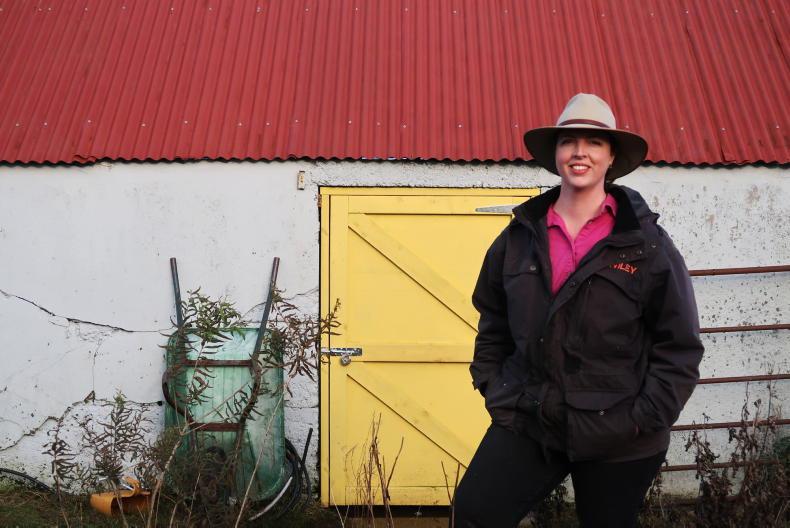With third-level education becoming increasingly difficult for students and parents to afford, the increases in student grants in 2024 are a welcome relief for many starting college this September. Students will receive as much as an additional €342 from January to March, depending on their grant rate.
During the 2024/25 academic year, maintenance grants will increase by €615 for all non-adjacent rates, and will range from €54 to €294 for adjacent rates. Along with this, for the first time in 13 years, Minister Simon Harris has announced the return of post-graduate maintenance grants.
What is SUSI?
The student grant scheme also known as SUSI (Student Universal Support Ireland), is the main financial support scheme for students studying in Ireland and abroad. The grants are divided into maintenance grants and fee grants.
If you have already completed your SUSI application for the 2023/24 academic year, it is essential that you have all documents up to date. SUSI will open for applications for the academic year 2024/2025 in the spring, so keep an eye on their website.
Maintenance grants for post-graduates
The postgraduate tuition fee grant increased by €1,000 (from €4,000 to €5,000) for students in the 2023/2024 academic year.
There will be a full restoration of maintenance grants under the Student Grant Scheme for post graduate students from September 2024. A pro-rata increase will be available from January 2024. This reintroduction of the maintenance grants will be worth up to €2,384 to eligible post-graduate students.
Late applications remain open
The online SUSI application system closed for the 2023/24 academic year in November but late applications may still be submitted until the end of May.
If you wish to make a late application, you must satisfy one of the following criteria:
•Your course for the 2023/24 academic year commences in 2024 prior to the end of the 2023/24 academic year.
•You have had a change in circumstances under one or more of the following criteria:
•Reckonable income
•An increase to the number of dependent children at home
•An increase to the number of relevant persons in further or higher education at home
•A change to your normal residence
•Nationality or immigration status
•Change of course or institution
•You experienced extenuating circumstances that adversely affected you and your ability to make an application for the 2023/24 academic year prior to the online closing date of 2 November 2023.
To apply, complete the Late Application Form 23-24 and email it to lateapplications@susi.ie.
Once-off cost-of-living measures
A number of measures were brought in under Budget 2024 to help students dealing with the cost of living. The student contribution will be reduced by €1,000 in the 2023/2024 academic year for students who qualify for the Free Fees Scheme.
If you have already paid your student contribution, you will still benefit from the reduction and you will get any refund due to you. From September 2024, the student contribution fee will be abolished for all incomes under €55,924.
Support for part-time students
A new pilot scheme will also be available for part-time undergraduate students who are attending eligible part-time programmes, in-person or online, leading to a major award at Level 6, 7 or 8 on the National Framework of Qualifications (NFQ).
The scheme rules are still being developed, but it is expected that the following will apply:
•The undergraduate programme must take place in the State and lead to a major award at Level 6, 7 or 8 on the NFQ.
•Students must meet nationality, residency, and progression criteria.
•Specified publicly funded undergraduate part-time blended and part-time online programmes will be eligible.
•Applicants with reckonable incomes under €55,924 will be able to apply – a SUSI means-test will determine eligibility.
Other financial supports
The Student Assistance Fund (SAF) is managed by the HEA on behalf of the Department of Further and Higher Education, Research, Innovation and Science. The aim of this funding is to provide a source of additional financial support in addition to SUSI.
Eligible students can apply to SAF through the access office in the institution they are attending. Students can apply for SAF if they are attending a course that leads to a higher education award from level six to level 10 of the NFQ and are studying at an eligible college.
What does SAF cover?
The SAF is available to assist students who are struggling to meet the day-to-day costs associated with third-level education. It covers the following:
•Books and class materials
•Rent and other utility bills
•Food
•Essential travel
•Childcare costs
•Medical costs
Fund for Students with Disabilities
The Fund for Students with Disabilities (FSD) is aimed at assisting higher-education institutions in ensuring students with disabilities have access to the necessary equipment to assist them in participating in college and completing their chosen course to study. To be eligible for support under the FSD, a student on an approved course must:
•Have a verifiable disability in one or more of the categories outlined below
•Meet the nationality and residency criteria
•Be a participant on a full-time, or part-time (Republic of Ireland only), course
•Have a verified need for specific supports to enable participation on their chosen course
What does FSD cover?
•Transport support
•Assistive technology equipment and software
•Non-medical helpers
•Academic/learning support
•Deaf supports
You may be entitled to support under the FSD even if you did not access college through the Disability Access Route to Education (DARE scheme).
Rent Tax Credit increased
The Rent Tax Credit for people paying for private rented accommodation will be increased from €500 to €750 a year from 2024.
The Rent Tax Credit will be extended this year to parents who pay for rented accommodation for their student children under the rent-a-room scheme and for ‘digs’.This change will be backdated to include the 2022 and 2023 tax years and you can request the rent tax credit on revenue.ie to claim back your entitled amount.
Additional info
The adjacent rate is paid when your college is less than 30km from your normal residence. The non-adjacent rate is paid when your college is 30km or more from your normal residence.
For more information: https://hea.ie/funding-governance-performance/funding/student-finance/student-assistance-fund/
Read more
There will be new vet course places in 2024 – Minister Harris
UCD launches new sustainable food systems course
With third-level education becoming increasingly difficult for students and parents to afford, the increases in student grants in 2024 are a welcome relief for many starting college this September. Students will receive as much as an additional €342 from January to March, depending on their grant rate.
During the 2024/25 academic year, maintenance grants will increase by €615 for all non-adjacent rates, and will range from €54 to €294 for adjacent rates. Along with this, for the first time in 13 years, Minister Simon Harris has announced the return of post-graduate maintenance grants.
What is SUSI?
The student grant scheme also known as SUSI (Student Universal Support Ireland), is the main financial support scheme for students studying in Ireland and abroad. The grants are divided into maintenance grants and fee grants.
If you have already completed your SUSI application for the 2023/24 academic year, it is essential that you have all documents up to date. SUSI will open for applications for the academic year 2024/2025 in the spring, so keep an eye on their website.
Maintenance grants for post-graduates
The postgraduate tuition fee grant increased by €1,000 (from €4,000 to €5,000) for students in the 2023/2024 academic year.
There will be a full restoration of maintenance grants under the Student Grant Scheme for post graduate students from September 2024. A pro-rata increase will be available from January 2024. This reintroduction of the maintenance grants will be worth up to €2,384 to eligible post-graduate students.
Late applications remain open
The online SUSI application system closed for the 2023/24 academic year in November but late applications may still be submitted until the end of May.
If you wish to make a late application, you must satisfy one of the following criteria:
•Your course for the 2023/24 academic year commences in 2024 prior to the end of the 2023/24 academic year.
•You have had a change in circumstances under one or more of the following criteria:
•Reckonable income
•An increase to the number of dependent children at home
•An increase to the number of relevant persons in further or higher education at home
•A change to your normal residence
•Nationality or immigration status
•Change of course or institution
•You experienced extenuating circumstances that adversely affected you and your ability to make an application for the 2023/24 academic year prior to the online closing date of 2 November 2023.
To apply, complete the Late Application Form 23-24 and email it to lateapplications@susi.ie.
Once-off cost-of-living measures
A number of measures were brought in under Budget 2024 to help students dealing with the cost of living. The student contribution will be reduced by €1,000 in the 2023/2024 academic year for students who qualify for the Free Fees Scheme.
If you have already paid your student contribution, you will still benefit from the reduction and you will get any refund due to you. From September 2024, the student contribution fee will be abolished for all incomes under €55,924.
Support for part-time students
A new pilot scheme will also be available for part-time undergraduate students who are attending eligible part-time programmes, in-person or online, leading to a major award at Level 6, 7 or 8 on the National Framework of Qualifications (NFQ).
The scheme rules are still being developed, but it is expected that the following will apply:
•The undergraduate programme must take place in the State and lead to a major award at Level 6, 7 or 8 on the NFQ.
•Students must meet nationality, residency, and progression criteria.
•Specified publicly funded undergraduate part-time blended and part-time online programmes will be eligible.
•Applicants with reckonable incomes under €55,924 will be able to apply – a SUSI means-test will determine eligibility.
Other financial supports
The Student Assistance Fund (SAF) is managed by the HEA on behalf of the Department of Further and Higher Education, Research, Innovation and Science. The aim of this funding is to provide a source of additional financial support in addition to SUSI.
Eligible students can apply to SAF through the access office in the institution they are attending. Students can apply for SAF if they are attending a course that leads to a higher education award from level six to level 10 of the NFQ and are studying at an eligible college.
What does SAF cover?
The SAF is available to assist students who are struggling to meet the day-to-day costs associated with third-level education. It covers the following:
•Books and class materials
•Rent and other utility bills
•Food
•Essential travel
•Childcare costs
•Medical costs
Fund for Students with Disabilities
The Fund for Students with Disabilities (FSD) is aimed at assisting higher-education institutions in ensuring students with disabilities have access to the necessary equipment to assist them in participating in college and completing their chosen course to study. To be eligible for support under the FSD, a student on an approved course must:
•Have a verifiable disability in one or more of the categories outlined below
•Meet the nationality and residency criteria
•Be a participant on a full-time, or part-time (Republic of Ireland only), course
•Have a verified need for specific supports to enable participation on their chosen course
What does FSD cover?
•Transport support
•Assistive technology equipment and software
•Non-medical helpers
•Academic/learning support
•Deaf supports
You may be entitled to support under the FSD even if you did not access college through the Disability Access Route to Education (DARE scheme).
Rent Tax Credit increased
The Rent Tax Credit for people paying for private rented accommodation will be increased from €500 to €750 a year from 2024.
The Rent Tax Credit will be extended this year to parents who pay for rented accommodation for their student children under the rent-a-room scheme and for ‘digs’.This change will be backdated to include the 2022 and 2023 tax years and you can request the rent tax credit on revenue.ie to claim back your entitled amount.
Additional info
The adjacent rate is paid when your college is less than 30km from your normal residence. The non-adjacent rate is paid when your college is 30km or more from your normal residence.
For more information: https://hea.ie/funding-governance-performance/funding/student-finance/student-assistance-fund/
Read more
There will be new vet course places in 2024 – Minister Harris
UCD launches new sustainable food systems course









SHARING OPTIONS